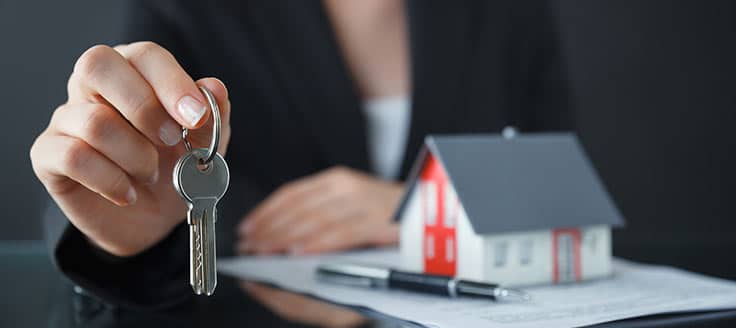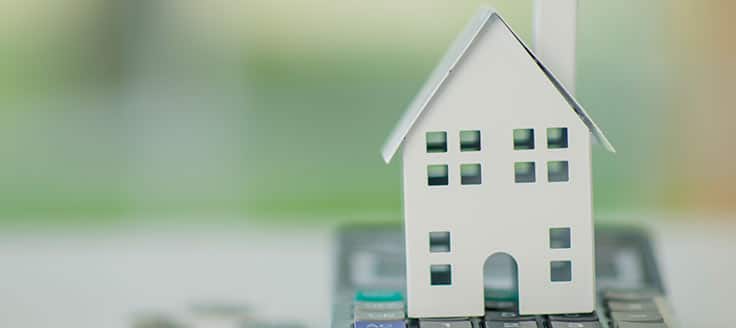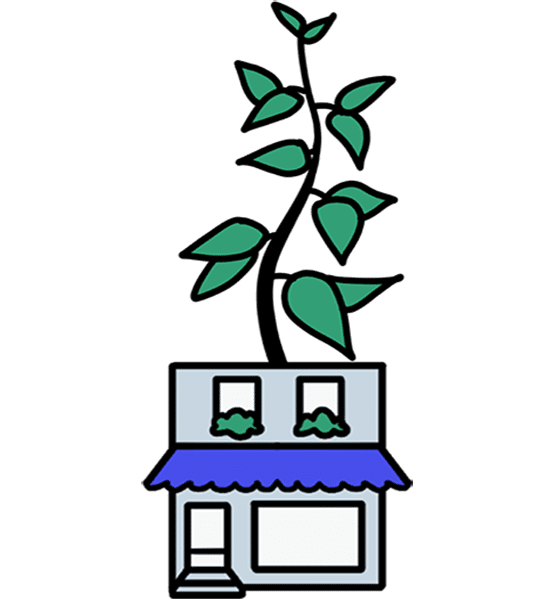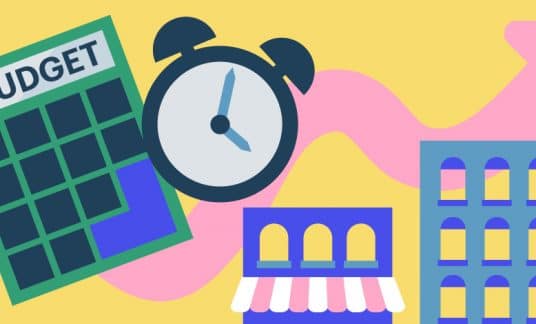Buying your first rental property can be a lucrative investment and a passive source of income. With a little effort, you can bring in money from tenants. But how do you get started?
Here are our 11 tips on how to buy your first rental property.
1. Decide How Hands-On You Want to Be
Before purchasing a rental property, decide whether you can handle being a landlord. You’ll need to consider the time you’re able to invest as well as your availability and abilities.
Do you have a full-time job with a demanding schedule? Do you live out of the area? Are you savvy at fixing a leaking pipe or unclogging a drain? How do you feel about taking emergency calls about pest problems at midnight?
If you prefer to delegate those matters to a property-management company, you’ll need to factor in that cost — and make sure it doesn’t exceed the income you bring in.
2. Use Leverage When Investing in Rental Properties
When you’re buying an investment property to rent, using borrowed money can help you afford a property that you can’t pay for outright. Getting the best mortgage payment and terms can help free up cash for maintenance and repairs.
Are you looking to buy your first rental property with no money for the down payment? You may be in luck. If you already own a house and it’s been increasing in value, you can tap your home’s equity and use it as the down payment for the rental property.

3. Determine Your Financing Options
When you’re considering how to buy investment property that’s right for you, make sure you know what you can afford. Qualifying for a rental property mortgage can be more complicated than it would be to qualify for a primary home loan. (It’s also unlike a commercial real estate loan). Why is that?
Loan Options Differ
Government-backed loans aren’t available unless you buy a multiunit residence and live in one of the units. Simply put, the fantastic loan you secured for your home may not be available for a rental property.
Extra Savings Is Crucial
Since you’ll likely buy a home before investing in rental property, you’ll need to be able to qualify for an investment property loan and be able to afford 2 home mortgages at the same time. Your income will likely need to be higher than when you qualified for the mortgage to purchase the home you live in.
As a rule, the borrower needs to prove they will have enough money to cover 3-6 months of expenses in checking, savings or retirement accounts after the rental property purchase.
Interest Rates May Be Higher
Because a rental property mortgage is a more significant risk to the bank compared with a standard home mortgage, the interest rate on your investment mortgage likely will be higher. The lender wants to make sure that you won’t just walk away from the investment. Landlords typically add this to the rent, but make sure you can cover a higher interest rate if you don’t have tenants in place.
4. Put Enough Money Down
A mortgage on a property that isn’t your primary residence is typically a bigger risk for lenders. As such, you’ll usually be required to put more money down when you’re buying your first rental property. Although you could get a private home loan with as little as 3% down, a rental property often requires at least a 20% down payment.
Don’t forget closing costs either, which often account for an added 2%-5% of the purchase price and account for title insurance fees, appraisal fees and taxes.
5. Focus on Single-Family Homes
Another pointer when you’re figuring out how to start buying rental properties? Consider buying a single-family home first rather than a multiunit property. Having one tenant will decrease the stress and amount of work that goes into managing the property while you try on those new landlord shoes.
A single-family home in a thriving neighborhood is a sought-after rental, so finding tenants shouldn’t be that challenging.
6. Purchase a Turnkey Property
A turnkey home is a dwelling that’s 100% ready to live in. In other words, it’s all set for a tenant to turn the key and move in their belongings.
Buying a residential rental property that’s ready to go lessens the risk of the unit sitting empty while under repair or renovation, which lowers your return on investment. That said, if repairs or renovations are needed, you’ll want to gather estimates to know what added costs you’ll need to include in your budget.

7. Calculate Your Return on Investment
Before buying an investment property to rent, you’ll want to figure out the capitalization rate (cap rate for short). This will help you determine how profitable a property can be.
What’s a Good Cap Rate?
Though a “good cap rate” can be subjective, according to real estate investment platform Zumbly, a good one can range from 4%-12%. Factors that can impact cap rate include demand, available inventory, location, property type and the real estate investment strategy.
The higher the cap rate, the riskier the investment is thought to be. However, a high cap rate typically means the price to purchase is low. Higher cap rates could indicate that there isn’t much room for appreciation, and as a landlord, your rental rates could be on the lower end and could remain stagnant from year to year.
8. Plan for Extras
Just like your home, a rental property requires more than merely paying the mortgage every month. Some extras can sneak up on you if you don’t plan for them.
Don’t forget to consider these operating costs when you’re researching how to buy and rent real estate:
Insurance
When you own a rental property, you’ll need landlord insurance to decrease your risk because you aren’t living in the residence. There are 2 components to landlord insurance: property and liability protection.
Landlord property insurance covers the dwelling, detached structures on the property (e.g., detached garage, fence) and certain personal property left on the investment property and used to service the rental (e.g., a lawnmower).
Landlord liability protection is a type of investment insurance that comes into play if someone gets injured on your investment property and you’re found to be at fault. An example could be that you did not make a timely repair that was your responsibility and someone was hurt as a result.
Keep in mind, flood insurance is oftentimes excluded from regular home insurance policies, so be sure to find out if the property is in a flood zone and if added insurance is required. Other landlord coverages are available, such as for vandalism, burglary and renovations.
You also might want to invest in a home warranty for everyday appliance repairs. These fixes aren’t typically covered by landlord insurance and usually fall as a landlord’s responsibility unless stated otherwise in the lease contract.
In addition to landlord coverage, it’s a good idea to require tenants to purchase their own renter insurance policy so their personal property is covered.
Property Taxes
Property taxes vary by local government but are based on the property value, including structures and land. Tax rates are typically calculated each year and determined based on the property tax rate and the current fair market value.
In many cases, you can visit the county’s property records website and look up the property address to see what the assessed value of the property is to date and what the current taxes are.
Keep in mind, a property could currently be assessed for tax purposes at a lower amount than you could be assessed for after purchase, perhaps because of special exemptions the current owner has. This means taxes will go up once you own it, so be sure to research the tax situation thoroughly before signing on the dotted line.
Maintenance
You’ll want to maintain your property to keep your tenants happy and to make sure they stick around. These expenses include the repair or replacement of appliances, plumbing and electrical costs, landscaping fees and trash collection.
Factor these costs into your ongoing expenses.
Homeowner Association Fees
This fee doesn’t apply to all properties. But if your neighborhood has a homeowner association (HOA), remember to calculate those monthly fees into the total cost of operations.
Also, keep in mind that sometimes special assessments will be imposed if deemed necessary by your HOA board, such as for community damage following a storm.
9. Decide on Your Marketing Plan
What is the most important thing you’ll need after purchasing a rental property? Tenants. To find reliable people with a solid credit history who can afford your rental rate, consider the marketing strategy you’ll need to find them.
Would it help to post and ad in the newspaper or on a bulletin board at a local coffee shop? Marketing online likely will get you the most responses. Post on real estate rental sites, such as Zillow or Cozy, or on social media.

10. Visit the Neighborhood
Don’t rely on photographs or online accounts of the neighborhood. Go there yourself. Take a tour of the community during the day and at night to scan for any potential safety concerns.
Chat with neighbors and let them know you’re considering purchasing a nearby property. Ask questions about the school district, crime rate and local amenities. People who live there know the ins and outs of the neighborhood more intimately than you can decipher from an online listing.
11. Draw Up a Legal Rental Agreement
When you decide to take on tenants, you’ll need to offer a lease. This legal agreement should include information such as rental rate, payment frequency, deposit terms, lease term, late payment fees, pet allowances, included utilities and appliances and penalties for early lease termination. Without a legally binding contract, you’re putting yourself at risk for a tenant to abandon the property and leave you with little or no recourse.
Be sure your tenant signs the lease before move-in day and provides with you any down payment and security monies in advance. A good rule of thumb is to request first and last month’s rent and a refundable security deposit.
Questions to Ask Before Buying
Understanding how to start buying rental properties is a big decision. In addition to the tips we’ve offered, ask the following questions.
Purchase Questions
- How motivated is the seller?
- How long has the seller owned the home?
- How long has the property been on the market?
- What did the seller pay for the home?
- Are there any liens on the property?
- Are there any offers on the property?
- If you receive a counter-offer or there’s another bid on the property, what is your walk-away point?
- How much can you really afford to spend?
- Will you need mortgage insurance?
- How long are similar properties in the area staying on the market?
- What’s the current average rate of appreciation?
- When were major repairs last completed? (e.g., heating and air conditioning units, roof, windows) Are there any remaining warranties on repairs?
- Are any appliances not being offered in the sale?
- Are any furniture items being sold with the property?
- Is the house or building a green property?
- Has the seller completed a presale home inspection? If so, request a copy of the report.
Rental Questions
- Is the property currently a rental? If so, would there be a lease or tenancy agreement in the purchase contract?
- What are rental rates for similar properties in the area?
- How many rental properties are in the area?
- What is the average household income for the neighborhood?
- How walkable is the neighborhood within which the property is located?
- How close is the property to public transportation?
- Are there any limitations on parking?
Should You Be Investing in Rental Properties?
Buying your first rental property isn’t a decision to take lightly.
In addition to these tips, reach out to people you know who have bought investment properties. They could offer additional valuable insights to help you learn how to buy your first rental property.
Do the research and find out if investing in real estate is right for you.










